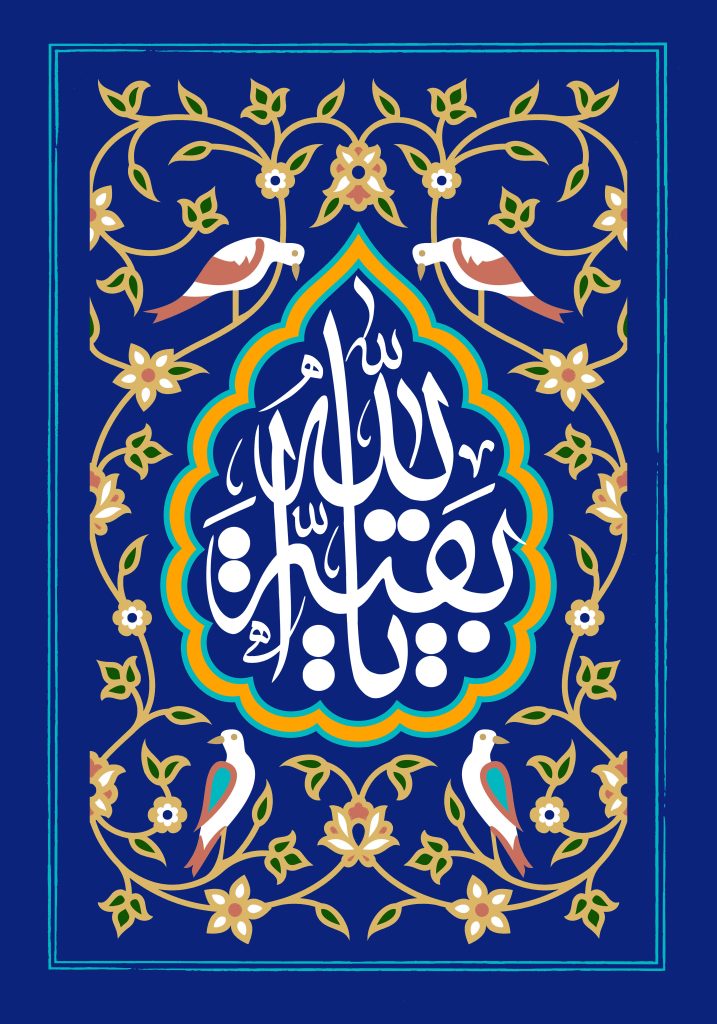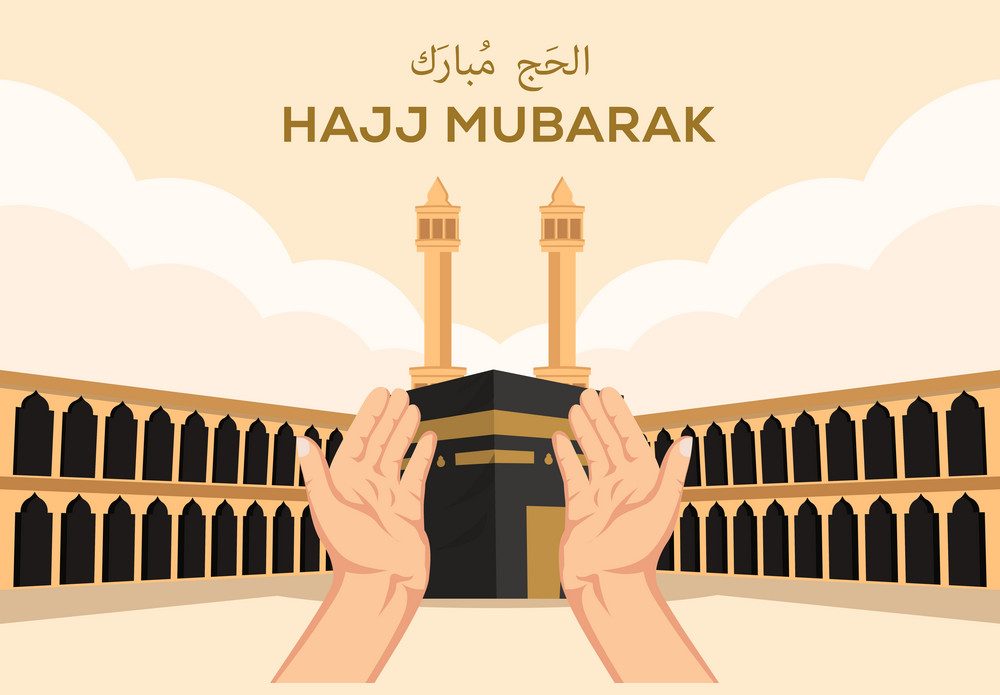The traditions of the Imams and Ahl al-Bayt shed profound light on the significance of Hajj, as detailed in various hadiths. Hajj, according to these teachings, encompasses a multifaceted purpose that extends beyond the physical pilgrimage. The Imams offer insights about hajj in hadith such as the elimination of poverty through the act of Hajj, stating that it negates poverty, emphasizing its transformative power. Additionally, the Imams highlight the pivotal role of the House of God, urging its continuous reverence to secure divine favor. Testing the obedience and faith of the servants is underscored by Imam Sadiq, who describes Hajj as a means for God to evaluate the devotion of His creation. In this article we examine some aspects of Hajj in hadith.

Hajj in hadith
hajj in hadith: Elimination of poverty: The Holy Prophet, peace and blessings of God be upon him, said: “Hajj negates poverty”
The House of God, Hajj in hadith from Ameer of believers: Imam Ali, peace be upon him, had important wills in the last moments of his life, and he said, among other things: “God, God about the house of your Lord [consider the Kaaba] as long as you are, do not leave it empty; Because if the Kaaba is deserted, you will not be given respite.”
Hajj in hadith: Testing the servants, Hajj in hadith from Imam Sadiq, peace be upon him: “And this is a house that God created to test their obedience in the faith of their worship and pilgrimage.” This is the House [of God] before which He made His creation his servants to test the people in following them in [performing the Hajj and] coming to the Kaaba. So he encouraged people to bow down and visit it; While he has made it the place [of worship] of the prophets and the Qiblah of those who pray. And the Kaaba is a branch of God’s contentment (Rizwan) and a path to God’s forgiveness, and it is installed at the center of moderation, perfection, and the assembly of greatness.”
Worldly needs, a Hajj in hadith from The Commander of the Faithful, Ali, peace be upon him: “; Whoever abandons Hajj for a worldly need, [his need] will not be fulfilled, unless he looks at [pilgrims] with shaved heads.” An innuendo to performing the Hajj and shave like other pilgrims so that his need would be fulfilled.
Hajj in hadith: Subduing the oppressors, Hajj in hadith from Imam Sadiq, peace be upon him: ” No shrine is more beloved to God than the place of trial; Because every tyrant is tamed there.”
Persistence of religion: Imam Sadiq, peace be upon him, says: ” As long as the Kaaba [and performing the Hajj] is standing, the religion will also be standing forever.
The effects and spiritual blessings of Hajj (Hajj in hadith)
According to the aforementioned points, in this section we will discuss the most important spiritual effects and blessings of Hajj, and we will discuss the material effects and blessings of Hajj in a separate article.
Hajj in hadith, Growing awareness and knowledge: getting familiar with the House of God and its ancient and long history, getting to know the place of revelation and the works left by the Holy Prophet, peace and blessings of God be upon him, and the infallible Imams, peace be upon them, and of course, bringing the history of Islam and memories to life. Its bitter and sweet places in Mecca and Medina introduce a person to a wide range of information, and it can be accurately said that a period of Islamic history is practically reviewed; Especially considering the fact that pilgrims visit and visit many important places in Mecca, from cave Hara to Arafat and Mena and various mosques, and in Madinah as well, and with the explanations provided by clerics or study It is done by the people themselves, their information and religious awareness is increased.
In the past, in addition to these issues, they got to know the infallible Imams (peace be upon them) and used their knowledge and knowledge. Today, you can increase your knowledge and information by visiting them and getting to know their status and dignity and oppression and using their precious words.
Imam Reza, peace be upon him, has been quoted as saying: “So if he says: Wh is it ordered to perform Hajj?” It is said: [one] should enter upon him because he has turned back to God… Apart from this, Hajj brings awareness [of rulings and teachings] and conveying the news [and words] of the Imams (peace be upon them) to all places [ the earth] and far away.” Aside from getting to know the rules and teachings; Acquaintance and conversation with different people from different Muslim countries with different cultures and languages will increase human awareness and information.

Hajj in hadith: purification of soul
Cleansing of sins: One of the most important effects of Hajj is purification from pollution and sins, which can lead to countless blessings.
The Prophet of Islam, peace and blessings of God be upon him, said: “Don’t you know that Islam [by becoming a Muslim] erases what was before it, and Hajj erases what was before it, and Hajj [ Does it also erase [and destroy] the sins and] what was before it?”
Therefore, a person who returns from Hajj is like a newborn baby, whose past is completely clean and his previous cases are declared sealed.
In the aforementioned narration from Imam Sadiq, peace be upon him, we read that God has made the Hajj a “path that leads to forgiveness”. Imam Ali, peace be upon him, also said: “The pilgrim and Umrah [is God’s guest and] enters God’s presence, and God gives him forgiveness [and forgiveness of sins] as a gift [and welcomes him in this way]
Even if he dies on the way to Hajj or while performing it, he will be forgiven by God and will be safe from punishment and punishment on the Day of Judgment. Hazrat Sadiq (peace be upon him) said: “Whoever dies on the way [to the House of God in] Makkah, while going or returning from this world, will be safe from the great lamentation of the Day of Judgment.”
And if he died while in Ihram, he will resurrect as someone who say the zikr of Labbeik on the Day of Judgment: “Whoever dies while in Ihram, God will resurrect him with labbaik.” Labbeik means I am here, or I am at your service.
Read also: The miqat for umrah
Yes, Hajj, who by taking off his traditional clothes and wearing Ihram clothes and labbaik, saying “God! I removed the sins from myself and washed myself from the sins by taking a bath at the moment of Ihram.” It begins and continues with the tears of the moment of Tawhid, and with pilgrim looking at the house of God, he considers his greatest desire to be forgiven of his sins, and by going about the house of God, he announces that after this he will only revolve around God and divine values. , not air and satanic desires, until it reaches the sacrifice, which is actually the sacrifice of lust, and then shaving the head, which means that I also removed the thought of sin from my brain, thus, the first effect should be the removal of sin.
- Going to heaven: Every person who is cleansed of sins will surely be saved in the hereafter and eternal heaven will be his place. Hajj has both the effect of removing sins and a precious reward called heaven. The Holy Prophet, may God bless him and grant him peace, says: “There is no reward for accepted Hajj except Paradise.”




